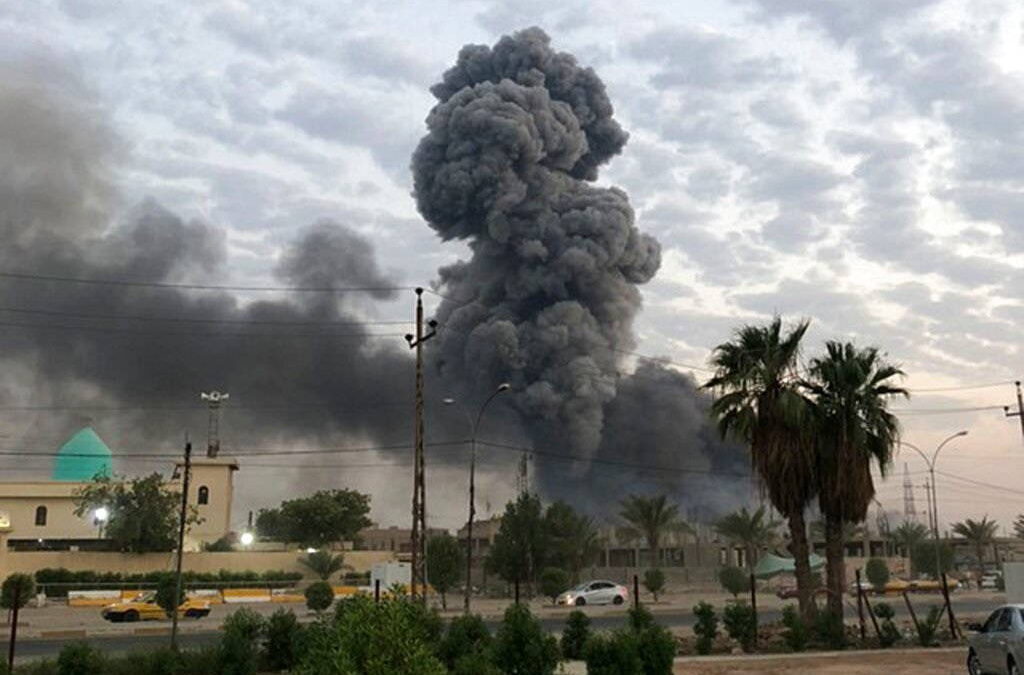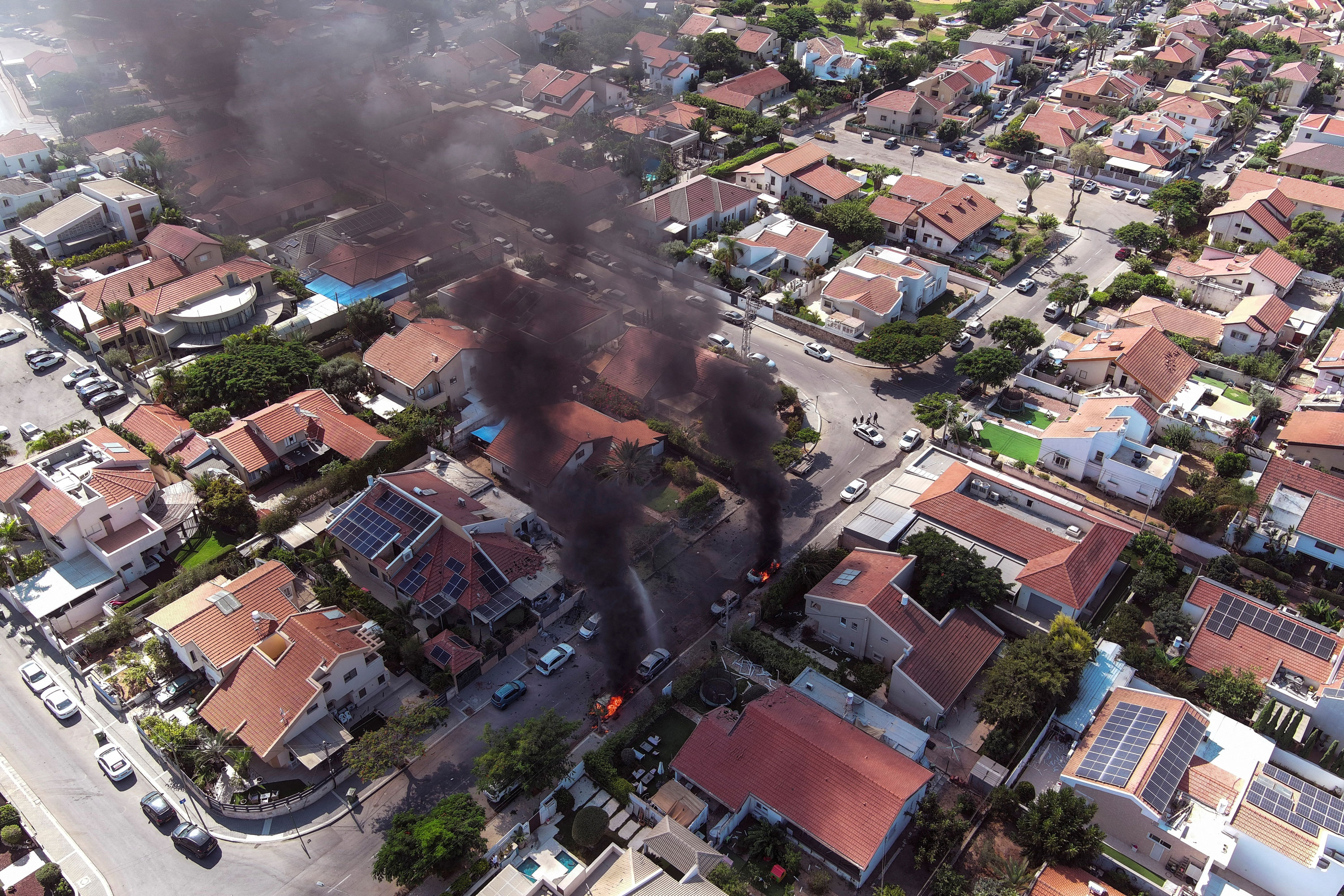Historical Context of Iran-Israel Tensions

The relationship between Iran and Israel is characterized by deep-seated animosity, rooted in a complex interplay of historical, religious, political, and geopolitical factors. This tension has manifested in various forms, from diplomatic estrangement to proxy conflicts and military confrontations.
Religious and Ideological Differences
The conflict between Iran and Israel is deeply intertwined with religious and ideological differences. Iran, a predominantly Shia Muslim nation, sees itself as the guardian of Islam and a key player in the region. Israel, a Jewish state, is seen by many in the Muslim world, including Iran, as an illegitimate entity occupying Palestinian land. The 1979 Iranian Revolution, which saw the overthrow of the Shah and the establishment of an Islamic Republic, further intensified this conflict.
The 1979 Iranian Revolution, Iran attack israel israeli
The 1979 Iranian Revolution marked a turning point in the relationship between Iran and Israel. The overthrow of the Shah, a close ally of the United States and Israel, was seen as a victory for the Islamic world and a blow to Western influence in the region. The new Islamic government, led by Ayatollah Ruhollah Khomeini, declared Israel an illegitimate entity and vowed to destroy it. This declaration cemented a deep-rooted animosity between the two countries.
Timeline of Key Events
The relationship between Iran and Israel has been marked by a series of escalating tensions, including:
- 1980-1988: Iran-Iraq War: The Iran-Iraq War, which lasted for eight years, saw Israel providing military and intelligence support to Iraq. This support, coupled with Iran’s accusations of Israeli involvement in attacks on Iranian civilians, further strained relations between the two countries.
- 1982: Lebanon War: Israel’s invasion of Lebanon in 1982, aimed at driving out the Palestine Liberation Organization (PLO), also involved attacks on Iranian-backed Hezbollah forces. This conflict further escalated tensions between Iran and Israel.
- 1990s: The Rise of Hezbollah: The rise of Hezbollah, a Lebanese Shia militia backed by Iran, marked a significant shift in the regional power dynamics. Hezbollah, operating as a proxy for Iran, has engaged in numerous clashes with Israel, further fueling tensions.
- 2006: Second Lebanon War: The 2006 Second Lebanon War, a 34-day conflict between Israel and Hezbollah, resulted in a significant loss of life on both sides. This conflict underscored the deep-seated animosity between Iran and Israel.
- 2011: Syria Civil War: The Syrian Civil War, which began in 2011, has seen both Iran and Israel actively involved in supporting different sides of the conflict. This has further complicated the relationship between the two countries, with accusations of attacks and assassinations on both sides.
- 2015: Iran Nuclear Deal: The 2015 Iran nuclear deal, also known as the Joint Comprehensive Plan of Action (JCPOA), aimed to curb Iran’s nuclear program in exchange for the lifting of international sanctions. While the deal was supported by Israel’s allies, Israel opposed it, fearing that it would enable Iran to develop nuclear weapons.
- 2018: US Withdrawal from JCPOA: The US withdrawal from the JCPOA in 2018, under President Donald Trump, further escalated tensions between Iran and Israel. The US re-imposed sanctions on Iran, prompting Iran to resume its nuclear activities and increase its military capabilities.
Military Capabilities and Strategies: Iran Attack Israel Israeli

The long-standing tensions between Iran and Israel have manifested in a complex web of military capabilities and strategies. Both countries possess formidable military forces, but their strengths and weaknesses differ significantly, shaping their approach to regional security. This section delves into the military capabilities and strategies of Iran and Israel, highlighting their unique strengths, vulnerabilities, and the potential implications of Iran’s nuclear program.
Military Capabilities of Iran and Israel
A comparison of Iran and Israel’s military capabilities reveals a nuanced picture. While Israel boasts a technologically advanced and highly trained military, Iran leverages a large and diverse force, incorporating conventional, asymmetric, and unconventional warfare capabilities.
- Israel: Israel’s military is widely regarded as one of the most technologically advanced in the world. It possesses a sophisticated air force, a well-equipped navy, and a highly trained ground force. Israel’s military doctrine emphasizes preemptive strikes and swift decisive action. It has a robust intelligence network and a strong tradition of military innovation.
- Iran: Iran’s military is the largest in the Middle East, with a large standing army, a significant navy, and a sizable air force. It has a well-established missile program and a sophisticated network of proxy forces operating across the region. Iran’s military doctrine emphasizes a layered defense strategy, utilizing a combination of conventional and unconventional forces. It has invested heavily in developing asymmetric warfare capabilities, including ballistic missiles, drones, and cyberwarfare.
Military Strategies of Iran and Israel
The military strategies employed by Iran and Israel reflect their respective strengths and weaknesses, and their perception of the regional security landscape.
- Israel: Israel’s military strategy is primarily focused on deterrence and preemption. It aims to deter potential adversaries from attacking Israel by demonstrating its ability to inflict significant damage. Israel has also employed preemptive strikes against perceived threats, such as the 1967 Six-Day War and the 1981 bombing of Iraq’s Osirak nuclear reactor.
- Iran: Iran’s military strategy is based on a multi-layered approach, combining conventional, asymmetric, and unconventional warfare capabilities. Iran’s asymmetric warfare strategy relies on utilizing unconventional tactics, such as using proxy forces, launching missile attacks, and conducting cyberattacks, to exploit its adversary’s vulnerabilities. Iran’s conventional forces are primarily designed to defend against a large-scale invasion, while its unconventional forces are used to conduct smaller-scale operations, such as strikes against Israeli targets.
Implications of Iran’s Nuclear Program
Iran’s nuclear program has been a major source of tension in the region, with Israel viewing it as a significant threat to its security. While Iran maintains that its nuclear program is for peaceful purposes, the potential for Iran to develop nuclear weapons has raised concerns among its neighbors and the international community.
- Increased Regional Tensions: The possibility of Iran acquiring nuclear weapons has significantly heightened tensions in the region. Israel has repeatedly stated that it will not allow Iran to develop nuclear weapons and has threatened to take military action if necessary.
- Arms Race: The potential for Iran to develop nuclear weapons could trigger an arms race in the region, as other countries seek to maintain a nuclear deterrent. This could lead to a proliferation of nuclear weapons, increasing the risk of a nuclear conflict.
- Destabilization: The development of nuclear weapons by Iran could destabilize the region, emboldening Iran’s regional allies and increasing the likelihood of conflict.
Regional and International Implications

The Iran-Israel conflict has profound implications for the broader Middle East region, impacting regional alliances and fueling tensions between neighboring countries. International actors, such as the United States, Russia, and the European Union, play a significant role in mediating or exacerbating these tensions, often with competing interests and objectives. An escalation of the conflict between Iran and Israel could have dire consequences for global security, potentially leading to regional instability and even wider conflict.
Impact on the Middle East Region
The Iran-Israel conflict has a significant impact on the Middle East region, affecting neighboring countries and regional alliances. The conflict has contributed to instability and heightened tensions in the region, often spilling over into other conflicts, such as the Syrian Civil War.
- Regional Alliances: The conflict has deepened existing alliances, such as the close relationship between Israel and the United States, while also contributing to the formation of new alliances, such as the Iran-Russia partnership.
- Neighboring Countries: The conflict has a direct impact on neighboring countries, such as Lebanon, Syria, and Iraq, which often serve as battlegrounds for proxy conflicts between Iran and Israel. These countries are often caught in the crossfire, suffering from violence, displacement, and economic instability.
- Economic Impact: The conflict has a significant economic impact on the region, hindering economic development and investment. The constant threat of conflict creates an environment of uncertainty and instability, deterring foreign investment and economic growth.
Role of International Actors
International actors, such as the United States, Russia, and the European Union, play a significant role in mediating or exacerbating tensions between Iran and Israel. Their involvement is often driven by competing interests and objectives, with each actor seeking to advance their own strategic goals.
- The United States: The United States has a long-standing strategic partnership with Israel and has provided significant military and financial support to the country. The US has also sought to contain Iran’s influence in the region and has imposed sanctions on the country. However, the US has also been involved in diplomatic efforts to reach a nuclear deal with Iran.
- Russia: Russia has close ties with Iran and has provided military and economic support to the country. Russia has also been involved in the Syrian Civil War, supporting the Syrian government, which is a close ally of Iran. Russia’s involvement in the conflict has created tensions with Israel, which opposes the presence of Iranian-backed forces in Syria.
- The European Union: The European Union has sought to promote peace and stability in the Middle East and has been involved in diplomatic efforts to resolve the Iran-Israel conflict. However, the EU has also imposed sanctions on Iran over its nuclear program and human rights concerns. The EU’s position on the conflict is often complicated by its need to balance its relationship with both Israel and Iran.
Potential Consequences of Escalation
An escalation of the conflict between Iran and Israel could have dire consequences for global security, potentially leading to regional instability and even wider conflict.
- Regional Instability: An escalation of the conflict could lead to a wider regional war, involving multiple countries in the Middle East. This could destabilize the entire region, leading to widespread violence, displacement, and economic hardship.
- Global Security: A conflict between Iran and Israel could have significant implications for global security, potentially leading to a global conflict. The involvement of other major powers, such as the United States and Russia, could escalate the conflict and lead to a wider war.
- Nuclear Threat: The possibility of Iran developing nuclear weapons has been a major source of concern for Israel and the international community. An escalation of the conflict could increase the risk of Iran using nuclear weapons, potentially leading to a catastrophic outcome.
Iran attack israel israeli – It’s understandable to feel overwhelmed by the news of the recent conflict between Iran and Israel. The complexities of international relations can be challenging to grasp, and the emotional impact of such events can be significant. It’s important to remember that we are not alone in our feelings, and seeking support from trusted friends or family can be beneficial.
In the midst of these events, it’s also crucial to stay informed about the broader political landscape, such as the current leadership in Minnesota under Governor Tim Walz, tim walz minnesota , as it can provide a broader context for understanding the global dynamics at play.
Ultimately, it’s through understanding and empathy that we can navigate these challenging times.
The escalating tensions between Iran and Israel are a stark reminder of the deep-seated anxieties that drive conflict. It’s a reminder that even in the face of such immense pressure, individuals can find solace in seemingly mundane activities. The recent trend of “very mindful very demure tiktok” very mindful very demure tiktok highlights how finding moments of peace and quiet can be a powerful coping mechanism, even amidst the anxieties of global conflict.
Perhaps these seemingly trivial trends can offer a small window into a more peaceful and mindful world, even as we grapple with the complex realities of international relations.
